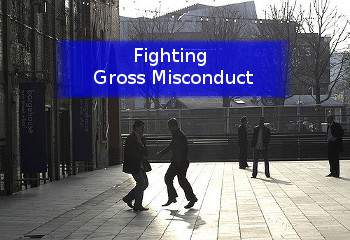The Employment Rights Advice Blog
 Articles, news and updates on employment law in Ireland
Articles, news and updates on employment law in Ireland
for employees and employers
____________________________________________________________________________________________________________________________________________________________________________________________________________________________________________________________________________________________________________________________________________________________________________________________________________________________________________________________
Beyond the written contract
Implied terms, custom & practice
 Starting a new employee is an exciting time. Lots to do, finally you get the contract of employment signed by both you and the employee and that covers everything. Or does it?
Starting a new employee is an exciting time. Lots to do, finally you get the contract of employment signed by both you and the employee and that covers everything. Or does it?
This article looks at terms which can affect the employment contract without having been written down. These can arise through two main areas; namely 1. Implied terms and 2. Custom & Practice.
Lets examine implied terms first.
Implied terms
Because a written contract cannot cover every possible eventuality, the practice has evolved of incorporating certain terms in to the agreement which are not written down. This does not happen by chance. There are ground rules which must exist in order for a term to become implied. Let’s examine a few of these.
Conduct of the parties after the contract is made.
The parties may conduct themselves in such a way as to imply the existence of a term, even though it was not written into the contract. There must be the intention to create a binding term. This can arise, for example, where an employer changes the role of the employee without reference to the contract of employment. The employee by his/her actions accepts the change without saying or doing anything. Where this contioues long enough, the change will be deemed to be part of the contract.
The officious bystander
It is so obvious that a bystander can see it.
Business efficacy
Where it is essential to the performance of the task. This could be an essential qualification or skill.
Terms implied by statute
Where a term is not mentioned in a contract but is covered in a statute (law) the statute will apply. For example statutory leave entitlements. Health & Safety.
Terms implied by law
These are basic terms which the law expects the parties to uphold. For example, loyalty, confidentiality, follow reasonable direction, provide work, pay on time,grievance procedure,minimum wage, mutual trust
Custom & Practice
Strictly speaking custom & practice is an implied term. We have given it a seperate category in order to emphasise its importance.
To establish that a term is part of a contract under this heading, you need to show that it is “reasonable, notorious and certain” . This phrase comes from case law. Notorious is read as well known. It is a practice that has arisen over time. The parties have conducted themselves in such a way as to imply that the behaviour is binding even though nothing has been said or written down. The annual bonus can come under this heading if the employer is not careful.The payment of overtime is another candidate.
Any custom & practice must be longstanding and followed by the parties over a long time. It must be reasonable and continuous over a long period of time, with few if any deviations. There must be an expectation that if action A is taken result B will occur. It can be difficult to establish.
Generally an implied term cannot overide an express written term.
Employers should take care when drafting contracts to ensure that as many terms as possible are covered. It is better to seek the advice of an expert now rather than later, when a problem has arisen.
Where can I get help ?
We provide a range of services to both the employer and employee.
If you need a precedent contract, try out our DIY documents section , where you can select and download the document of your choice.
Or you can sign up for our monthly service and get ongoing support at a very competitive fee (First month Free).
If you would like to contact us with a specific query then just use the orange Tell Me More button below and we will contact you at a time that suits.
Spread the knowledge. If you found this article useful, please like and share using any of the social buttons below
Employers.
Do you know what to do when faced with gross insubordination?
First of all we need to look at what constitutes gross insubordination. We then need to consider what are the appropriate steps to take when dealing with gross insubordination. This will involve producing a policy and procedure to deal with gross insubordination in the workplace.
What is gross insubordination?
Insubordination occurs when an employee deliberately disobeys ,or ignores, a legitimate instruction from a superior. It goes to the heart of the employee/ employer relationship. Where a lawful instruction is given in good faith by an employer, or someone placed in a position of authority by the employer, it must be carried out if it is within the capability and job description of the employee.
This raises a number of points worth considering:
-
The instruction must be legitimate. If it is unlawful or unsafe then the employee is justified in refusing to act on it.
-
It must be given in good faith. Where the instruction is given merely to embarass the employee or cause harm by an employer, rather than in the normal course of the working day, an employer cannot rely on the defence of gross misconduct. The absence of good faith tarnishes this defence.
Abusive language by a worker towards supervisors can also be considered insubordination and needs to be dealt with.
How do I deal with gross insubordination?
When faced with an insubordinate worker your initial reaction may be to dismiss them on the spot. You should resist that impulse and consider the following:
-
How was the order communicated to the employee? Was it conveyed in a clear manner?
-
Did the employee understand what was required? Was the order disobeyed intentionally?
-
Did anything in the workplace affect the worker? Have other workers refused before without being reprimanded? Did a coworker provoke the employee? Does the worker know what is unacceptable behaviour?
-
Was the order ligitimate?
-
How disruptive was the refusal? Did it have a major impact on production or could it be fixed easily? How did it affect the other workers? Did it affect safety at work?
What can I do to discipline the insubordinate worker?
If after considering the above, you believe that the workers actions consitiute insubordination you need to follow your disciplinary policy strictly. Even when you feel justified in dismissing the employee on the spot, you need to take a deep breath and follow your disciplinary procedure. If the employee’s behaviour was such that summary dismissal was justified, you have the peace of mind that comes from knowing that you followed the correct procedures when terminating the employment of the insubordinate employee. It is a fact that most unfair dismissal awards in Ireland are the result of the employer failing to follow the correct procedures.
When should I impliment a progressive step disciplinary policy?
Where the behaviour falls short of gross insubordination you should follow your disciplinary policy.
This involves various levels of reprimand based on the severity of the behaviour. It usually involves steps such as verbal warning, written warning and then termination. It should allow for commencement at any level where the conduct has been such as to justify starting at that level. For example, if the behaviour was so bad that a written warning is required, without having to start with a verbal one.
Create an insubordination policy today
If you have an insubordination policy, you should review it to ensure that it is fit for purpose. If you do not have a policy, then don’t delay get one today. It can save you money and trouble.
Where can I get more information?
See our article on disciplinary policy here
Contact us using the orange Tell Me More button below and we will contact you at a time that suits.
Spread the knowledge. If you found this article useful, please like and share using any of the social buttons below.
Image courtesy modernrockstar, with some alteration (banner) , ![]()
What is Gross Misconduct ? (and what to do with it)
 Gross misconduct and dismissal without notice (summary dismissal) can prove challenging for employers in Ireland in some circumstances.
Gross misconduct and dismissal without notice (summary dismissal) can prove challenging for employers in Ireland in some circumstances.
This article examines the definition of Gross misconduct, what actions amount to Gross misconduct and what procedures an employer should follow in order to summarily dismiss an employee for Gross misconduct, while at the same time avoiding the pitfalls which can lead to a claim for unfair dismissal.
What is Gross Misconduct?
Gross misconduct can be defined as; Where the misconduct is such that it breaches the bond of trust that must exist between employer and employee, to such an extent that it effectively ends the relationship and warrants dismissal without notice.
Correct procedures must still be followed, but if the outcome is dismissal resulting from gross misconduct, then no notice period or written warning, is required.
Where can I get a Disciplinary procedures policy for my business?
You can download one of our precedents and amend it to suit your needs. There is also an option to have one of our experts review the final policy for you and make any necessary changes. That gives you the peace of mind that comes from knowing that it has been reviewed by a professional. It also saves you a large legal bill.
What actions amount to gross misconduct?
The following is not an exhaustive list and it comes with the warning that every case is different. Even when you believe that the employee may be guilty of an act of gross misconduct similar to one of the examples below, you still have to follow the correct procedures before dismissing them.
-
Sexual harassment
-
Deliberate fraud
-
Sleeping at work
-
Fighting, physical assault, abuse
-
Unable to carry out work tasks due to the consumption of drus or intoxicants
-
Possession of illicit drugs, or their supply or use
-
Making a false allegation of injury in the workplace
-
Deliberate refusal to carry out legitimate instructions
-
Deliberate damage to company property
-
Deliberately poor work performance
-
Breach of company confidentiality policy by sharing sensitive information with competitors.
-
Stealing
-
Inappropriate behaviour towards clients
-
Use of company property without obtaining prior approval
-
Bullying, harassment,victimisation, breach of anti-discrimination policy
-
Accepting or offering bribes
-
indecent behaviour
-
major breaches of health and safety rules
The test for gross misconduct is “Would it be reasonable to consider this action to be a serious breach of acceptable workplace behaviour.”
To avoid the employee claiming that they didn’t think some actions amounted to gross misconduct it is best to list these borderline areas as gross misconduct. These may include:
-
Viewing or downloading pornographic material
-
Uploading or downloading software which may pose a threat to the company computer system.
-
Using social media in such a way that it has a negative effect on the reputation of the company.
How do I dismiss an employee for gross misconduct?
You may be of the opinion that gross misconduct warrants instant dismissal. That is not the case.There are steps which you must follow, before you dismiss someone for gross misconduct. You must hold a fair hearing and investigate the facts. This involves holding a fair hearing and affording the accused an opportunity to respond. You must make them aware of the substance of the gross conduct allegations in advance of the hearing. You must carry out a thorough investigation. This may involve taking statements from witnesses as well as from the accused employee. If there is a potential risk to your business and strong evidence of the alleged misconduct, then you should consider suspending the employee on full pay pending the outcome of the enquiry. This is a serious step and should only be undertaken after consulting employment law experts.
The disciplinary hearing
The whole disciplinary process must follow the rules of natural justice. For more on natural justice and disciplinary procedures see
The Code of Practice on Grievance and Disciplinary Procedures (S. I. 146 of 2000) sets out the principles of fair procedures for employers and employees. You should conduct the hearing in accordance with its recommendations. It is not legally binding, but by adhering to it you should have a good defence to any allegation of unfair behaviour.
Code of Practice, Labour Relations Commission Grievance and Disciplinary Procedure, Download here
The employee should be made aware of the fact that they can be accompanied by a trade union official or work colleague.
They should be given an opportunity to respond to any allegation and cross examine witness if necessary.
When you have heard all of the evidence and the accused employee’s responses you should then come to a decision.
Where you have decided to dismiss the employee you should prepare a formal letter confirming the dismissal without notice. The letter should cover the following:
-
The reason for the dismissal
-
the grounds for the gross misconduct
-
any prior warnings
-
the fact that there will be no notice or pay in lieu of notice
-
The date on which employment ceases
-
Holiday pay and final salary payment arrangements.
-
Reminder to return company property
-
The right to appeal against dismissal
What can go wrong when dismissing an employee for gross misconduct?
Most claims for unfair dismissal are won because the employer failed to follow the correct procedures, rather than won because the employee had a more persuasive argument. Our advice is to take your time and follow the procedures to the letter. Do not deviate. If anything you do is held to be unfair, then you will lose the case.
If you suspend an employee without having obtained sufficient evidence, then you may be facing a claim for constructive dismissal, on the grounds of breach of the duty of trust and confidence which must exist in the context of employment.
See also Gross Misconduct Case
Next steps.
Firing a person for gross misconduct can be a difficult decision to make. You should not make it on your own. Take advice from one of our experts and avoid the expensive pitfalls. Lets us look after your employment law needs, leaving you to concentrate on what you do well.
Contact us today using the orange Yes! Tell Me More button below.
Spread the knowledge. If you found this article useful, please like and share using any of the social buttons below.
Image courtesy Meg Rutherford, with some alterations (banner) , ![]()
Latest Employee Blogs
- Performance Improvement Plan or Exit Strategy?
- Whistleblower awarded five years salary by Workplace Relations Commission
- Unlawful COVID-19 pay cut
- Unfair Redundancy Case
- How to raise a problem at work
- Trade Secrets and Whistleblowing
- Is your fixed term contract valid?
- What is it like to bring an unfair dismissal claim?
- Employer relocation
- End of P45
Latest Employer Blogs
- Changes to probationary period
- Redundancy Update
- COVID-19 Vaccination Data in the workplace
- Statutory Sick Pay Scheme
- The Right to Disconnect
- Covid-19 Can I use lay off and short time to cope with Covid-19 ?
- Covid-19 (The Coronavirus) Tips for employers
- Social Media Monitoring in the Workplace
- Using 3rd party CCTV footage
- Do I need a Data Protection Officer ?









